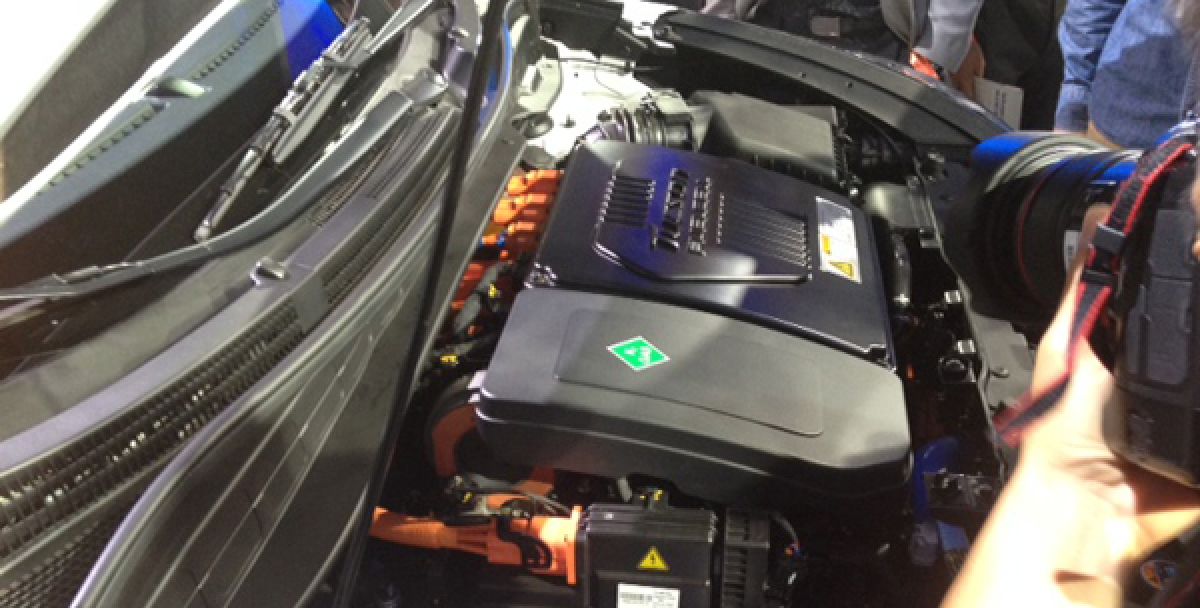In my opinion, the Hyundai Tucson hydrogen fuel cell vehicle is going to be the real deal. Consumers will soon be driving them in the next couple months but there are five important facts to know before turning the key.
You Won't Own It: Hyundai, like every other manufacturer who has offered a fuel cell vehicle in the past, will lease it to you for $499 a month after $2999 down. That's a great price in Southern California because it gives you access to the highly desired carpool lanes. Plus, your fuel is free for the entire 36 months you lease it.
No Range Anxiety: Unlike a traditional electric vehicle – and deep down that's what a fuel cell vehicle is – you won't have to worry about range. It will have a range of about 300 miles, just like most internal combustion engines currently do. Even the best electric vehicles are going to get you about 100 miles of range. By the way, that range is fine for most drivers 90 percent of the time but Americans don't think that way.
The only downside is when this vehicle goes on sale in the spring it is only going to be in Southern California. There's not a public infrastructure outside of California on a meaningful scale right now. California does plan to add 100 stations between Los Angeles and San Francisco, though, which will really open up the marketplace for hydrogen vehicles. That's a strong reason companies are bringing them to market.
Fast Fill-up Time: Hyundai CEO John Krafcik said refueling time is going to be about 10 minutes, comparable to how long it takes to pump a tank of gas. Even the fastest electric vehicles can take 30 minutes to charge and that's usually only to 80 percent capacity.
No Shortage of Hydrogen: Probably the best reason to buy a hydrogen fuel cell vehicle is the United States is way over capacity. We actually export it. It totally decreases our dependence on other countries for fuel. Plus, methane can be used to create hydrogen. As long as we have flatulent cows, we'll have hydrogen and I don't see Americans going vegetarian any time soon. (And, garbage dumps are another excellent source of methane).
It's a Regular Tucson: The fuel cell stacks aren't going to gobble up lots of interior space. They all fit in the current Tucson engine compartment. No floor space gone. No trunk space eliminated. It's a Tucson without an internal combustion engine.






Comments
Wondering about some of your
Permalink
Wondering about some of your assumptions...
"Even the best electric vehicles are going to get you about 100 miles of range."
Haven't looked at a Tesla? They're the best of the EV crop, and go over 200 miles per charge.
"The only downside is when this vehicle goes on sale in the spring it is only going to be in Southern California. There's not a public infrastructure outside of California on a meaningful scale right now. California does plan to add 100 stations between Los Angeles and San Francisco, though, which will really open up the marketplace for hydrogen vehicles."
I suppose you're right, if you consider only a relatively small corner of the U.S. as a big marketplace.
But it's not much compared to marketing the rest of the country.
"No Shortage of Hydrogen ... It totally decreases our dependence on other countries for fuel."
We're not dependent upon other countries for hydrogen, but with so few vehicles using it there is insignificant decreasing our dependence on other countries for fuel overall.
"As long as we have flatulent cows, we'll have hydrogen..."
Not directly - we'll have methane from which we could derive hydrogen. How do you propose we capture this methane?
Love your enthusiasm. Just please don't over-hype. That leaves the door open for detractors.